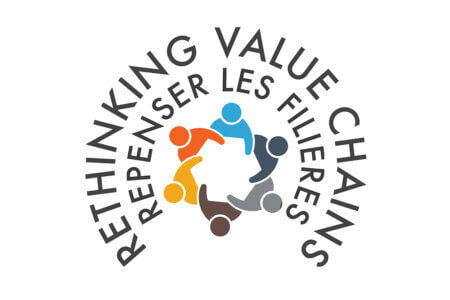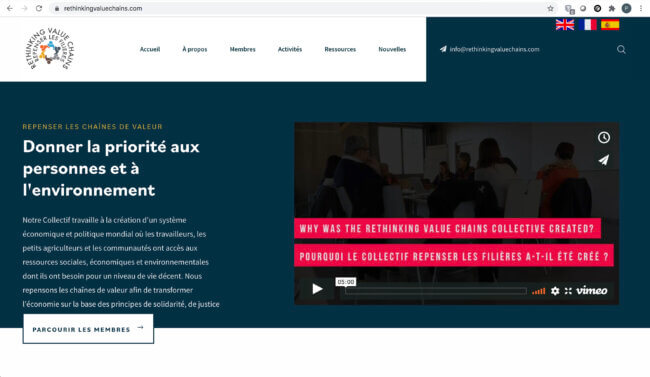English
The Rethinking Value Chains (RVC) collective brings together civil society actors – including NGOs, trade unions, academic institutions – with expertise on value chain issues and the empowerment of workers and local communities in the face of global corporate economic interests.
The aim is to provide a space to engage in fundamental discussions on the current dominating economic system (neo-liberalism) and ways in which we can work together towards sustainable alternatives that put people and the environment first.
Through sharing the experiences, tools and strategies of the various organisations involved we hope to strengthen and add value to existing initiatives – such as those on the stricter regulation of corporations – whilst also providing an opportunity to think creatively about how to revolutionise and re-territorialise the current economic system and towards a sustainable alternative at local, regional and global level.
The RVC collective, founded in 2016, is coordinated by Banana Link and ReAct – the French Network for Collective Transnational Action with the support of the Charles Léopold Mayer Foundation for the Progress of Humankind (FPH).
A full list of members is available at the Rethinking Value Chains website.
Main Activities
Each year we hold a strategic meeting of network members and partners at ‘La Bergerie de Villarceaux’ near Paris, with the aim of exchanging experiences and strategies for rethinking and transforming value chains – in particular agricultural, textile, electronics and mining industries – and defining our joint activities.
The report from previous seminar can be found here and our current activities are described in the Prezi presentation here. These include:
- Strengthening our joint value chain analysis, including sectoral case studies, to better inform our strategy and practical action along the value chains in which we work, in collaboration with local partners. See example published studies on coffee, copper and smartphones.
- Taking concrete steps towards the redistribution of value and the monitoring of prices and value along supply chains, in collaboration with industry partners.
- Collaborative reflection and action focused on the transport and logistics sector – in collaboration with the International Transport Federation – to better identity ways to improve conditions along the entire value chain, from farm/factory to consumer.
- Mobilisation towards the stricter regulation of value chains, including engagement in the international campaign on ‘Rights for People, Rules for Corporations’
- Development of a “tool-box” of resources and education materials to empower affected communities and workers to defend their rights.
- Strengthening our membership and developing our local alliances by promoting the active participation of geographically diverse organisations.
- Promoting our “think-and-do-tank” functions, including action-focused research, webinars, workshops and an online platform (to be launched in 2020).
Tracking information on emerging trends in value chains
Develop online reviews and share existing publications, research results, etc., around the themes of the network;
Develop educational material for future managers and decision-makers (students in business/management/economics schools)
Organise workshops on specific themed questions linked to the reconfigurations of value chains.
The launch of a public campaign in late 2019 to mobilise public opinion and make consumers aware of the need for binding regulation, fair and sustainable trade, economic alternatives and global action on climatic change. This will involve a potential collaboration with the S2B Seattle to Brussels network campaign to ‘Stop ISDS and end corporate impunity’ in 2019

